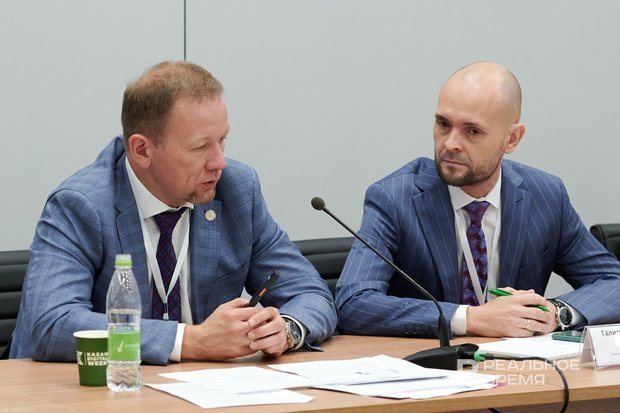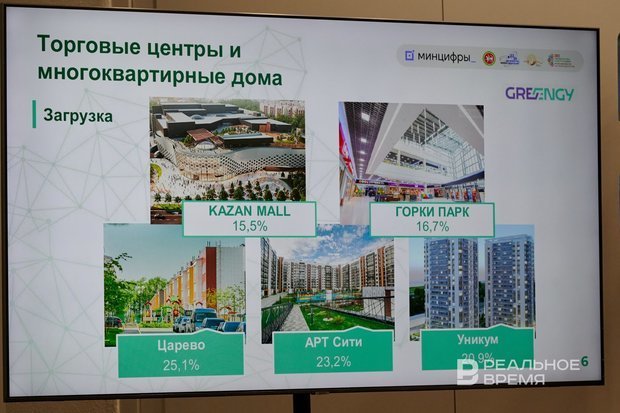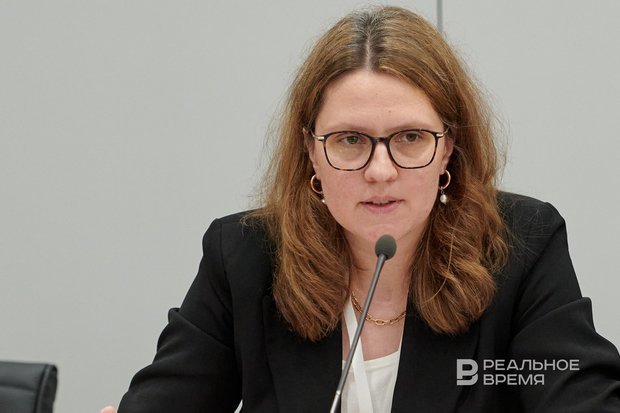‘Residential buildings and shopping malls without charging stations should become nonsense’
Problems of development of charging infrastructure for electric vehicles were discussed at Kazan Digital Week

According to Deputy Minister of Industry and Trade of the Republic of Tatarstan Marat Minibayev, today there are 451 electric vehicles in the republic and about 180 charging stations have already been installed. Total electric cars in Russia — 23 thousand, according to data of the previous year. The sales of “commuter trains”, as they are popularly called, has increased by 34%. They are going to be at least 1,5 million by 2030. But there is a big problem with the development of charging infrastructure. The UD Group Company has taken the initiative to amend regulatory legal acts that relate to simplifying the procedure for connecting power plants to already built facilities. At Kazan Digital Week, the parties interested in development discussed the problem together with the Deputy Minister of Industry of the Republic of Tatarstan.
The main problem discussed at the session “Development of electric transport and charging infrastructure in the city of the future” is the uniform coverage of the charging stations of the road networks of Russia in general and the Republic of Tatarstan in particular. In 2021, the Russian government approved a concept for the use of electric transport. Deputy Minister of Industry and Trade of the Republic of Tatarstan Marat Minibayev says that the republic has supported the federal programme and has become an active participant in it. If now the number of charging stations is about 180 points, then next year they are planned to increase to two hundred. A number of measures have been taken to stimulate the development of not only production, but also the use of electric vehicles. In particular, from January 1, 2024, owners of electric cars are exempt from paying transport tax. But these measures will not give the desired effect if there is no wide and convenient network of charging stations.

Deputy Minister of Industry and Trade of the Republic of Tatarstan Marat Minibayev: “When we started implementing this programme, we did not have an understanding of where the flows of electric vehicles were.
We determined the installation of power plants ourselves, so there were mistakes. Some power stations were overloaded.
Minibayev believes that it is necessary to adhere to the Chinese version of infrastructure development. There, the government annually forms a programme for the introduction of new charging station installation points, determines their number and locations. But at the same time, he added that all new commercial and residential facilities should be designed taking into account the inclusion of places for power plants in them. “Residential buildings and shopping malls without charging stations should become nonsense," Minnibaev summed up.
For these purposes, UD Group created a project — the network of Greengy electric charging stations. But its executive sees a significant problem not with equipping new facilities with stations, but in establishing power points in already built houses. According to Greengy statistics, electric car owners prefer to charge cars where they rest. The duration of one charging session in a shopping centre is 2 hours, and in apartment buildings — seven. More than 20% of the load falls on stations in residential complexes. According to the plan, 2,8 million square metres are going to be commissioned in Tatarstan in 2023. And developers are initially ready to lay charging stations in the house project. But there is still 63,03 million square metres of already commissioned housing stock, where there are problems with the installation of power plants.

Greengy project manager Roman Tyukalov: “Seven owners of electric cars have contacted us with a request to connect stations in their own parking spaces.
But the management company simply could not coordinate with other apartment owners the installation of a charging station.
To date, the management company cannot do anything on the territory of an apartment building or residential complex without the consent of the owners. To do this, it is necessary to hold a meeting and get a majority of votes for installing a charging station in parking spaces. And then two problems come up. Firstly, it is difficult for the management company to gather people. And secondly, and this is the main thing, apartment owners do not understand why they need such a station if they do not have not only an electric car, but also an ordinary car.

Greengy Project Manager Roman Tyukalov: “A significant problem is the obtainment of technological connection, the need to coordinate the placement of stations with the owners of apartments in houses.
This procedure requires a lot of time. As a result of this session, we see support from the Government in simplifying the procedure for placing charging stations and making changes to regulatory legal acts.
Regina Lochmele, the director for strategic marketing at UD Group, also spoke about the need to develop the infrastructure of charging stations for electric transport. She spoke about the concept of cities of the future, in which electric mobility will be one of the important components of a comfortable and convenient life. Lochmele suggests the gradual abandonment of gasoline and diesel cars and the transition to electric cars, since they reduce the emission of gases and the growth of the greenhouse effect, reduce the level of noise pollution and air pollution. And she also talks about changing the overall business model of vehicle ownership — primarily through the development of sharing services (electric cars, scooters). Switching to electric transport means not only reducing consumer spending and reducing dependence on oil, but also creating new jobs.

Director of Strategic Marketing at UD Group Regina Lochmele: “There are different approaches to shaping the city of the future: resilient, autonomous, green, innovative, inclusive. For example, we have recently been in Singapore. It focuses on the concept of the development of a green city, the system of electric vehicles there is practically undeveloped. But Dubai is definitely an innovative city, the probability of the development of electric vehicles in it is very high. There will be no uniform standards, and the cities of the future will not be similar to each other.”
Electric mobility is directly related to the concept of the city of the future. It is difficult to say what Kazan will be like in ten or twenty years. But there will definitely be electric cars in it. As Deputy Minister of Industry and Trade of the Republic of Tatarstan Marat Minibayev supported the initiative of UD Group and asked to prepare a draft of changes for discussion.